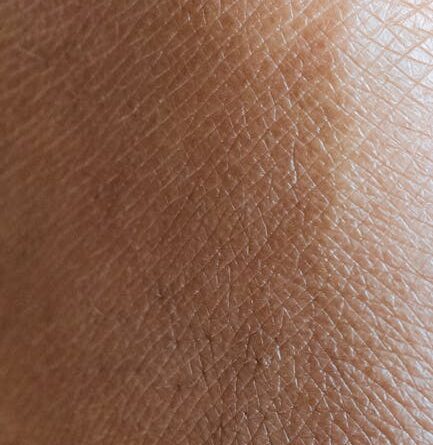Natural Solutions for Skin Irritations and Itching
Natural Solutions for Skin Irritations and Itching
Skin irritations and itching can be more than just a minor annoyance; they can significantly impact your quality of life. Whether caused by allergies, dry skin, or other conditions, finding effective and natural solutions can bring much-needed relief. This blog post delves into a variety of natural remedies that can ease skin irritations and itching, providing you with actionable tips and valuable insights.
Understanding Skin Irritations and Itching
Before diving into solutions, it’s essential to understand what causes skin irritations and itching. Common causes include:
- Allergies
- Dry skin
- Eczema
- Psoriasis
- Insect bites
- Contact with irritants like chemicals or synthetic fabrics
Natural Remedies for Skin Irritations and Itching
Here are some tried-and-tested natural solutions to help alleviate skin discomfort:
Aloe Vera
Aloe Vera is renowned for its soothing properties. This succulent plant’s gel can ease itching and reduce inflammation.
How to Use: Extract the gel from an Aloe Vera leaf and apply it directly to the affected area. Leave it on for about 20 minutes before rinsing off.
Oatmeal Baths
Colloidal oatmeal is another excellent remedy for itchy skin. It has anti-inflammatory properties that can soothe and moisturize the skin.
How to Use: Add one cup of colloidal oatmeal to a lukewarm bath. Soak for 15-20 minutes, then pat your skin dry.
Coconut Oil
Coconut oil is rich in fatty acids that can help moisturize and soothe irritated skin.
How to Use: Apply a thin layer of virgin coconut oil to the affected area and leave it on. You can use it several times a day as needed.
Herbal Remedies
Herbs have been used for centuries to treat various skin conditions. Here are some effective herbal remedies:
Chamomile
Chamomile has anti-inflammatory and antioxidant properties that can relieve itching and redness.
How to Use: Brew a strong chamomile tea and let it cool. Soak a cloth in the tea and apply it to the affected area for 15 minutes.
Calendula
Calendula, also known as marigold, is known for its healing properties. It can reduce inflammation and promote healing.
How to Use: Apply calendula cream or oil to the irritated skin. You can also brew calendula tea and use it as a compress.
Essential Oils
Essential oils can also offer relief from skin irritations and itching. However, they should be used with caution and always diluted with a carrier oil.
Tea Tree Oil
Tea tree oil has antiseptic and anti-inflammatory properties that can help soothe itchy skin.
How to Use: Mix a few drops of tea tree oil with a carrier oil like coconut or olive oil. Apply the mixture to the affected area.
Lavender Oil
Lavender oil is known for its calming and anti-inflammatory properties.
How to Use: Add a few drops of lavender oil to a carrier oil and apply it to the irritated skin. You can also add it to your bathwater for a soothing soak.
Nutritional Considerations
Your diet can significantly impact your skin health. Here are some nutritional tips to help alleviate skin irritations and itching:
Omega-3 Fatty Acids
Omega-3 fatty acids have anti-inflammatory properties that can benefit your skin. Foods rich in Omega-3 include fatty fish, flaxseeds, and walnuts.
Hydration
Keeping your skin hydrated is crucial for preventing dryness and itching.
Tip: Drink at least 8 glasses of water a day and eat water-rich foods like cucumbers and watermelon.
Probiotics
Probiotics can help improve your skin’s health by balancing your gut microbiome.
Tip: Include probiotic-rich foods like yogurt, kefir, and sauerkraut in your diet.
Practical Tips for Managing Skin Irritations
In addition to natural remedies, here are some practical tips to help manage skin irritations and itching:
Avoid Scratching
Scratching can worsen the irritation and lead to infections. Keep your nails short and consider wearing gloves at night to prevent scratching while you sleep.
Wear Loose, Breathable Clothing
Tight or synthetic clothing can aggravate skin irritations. Opt for loose, breathable fabrics like cotton.
Keep Your Environment Cool
Heat can exacerbate itching. Keep your living environment cool and use a humidifier to maintain optimal humidity levels.
When to See a Doctor
While natural remedies can be effective, it’s crucial to know when to seek professional help. Consult a healthcare provider if:
- The itching is severe and persistent
- There are signs of infection, such as redness, swelling, or pus
- You experience other symptoms like fever or difficulty breathing
Conclusion
Skin irritations and itching can be distressing, but natural remedies offer an effective and gentle way to find relief. From Aloe Vera and oatmeal baths to essential oils and nutritional adjustments, there are numerous options to explore. Remember, it’s essential to identify the underlying cause of your skin issues and consult a healthcare provider if necessary. By combining natural solutions with practical tips, you can manage skin irritations and improve your overall skin health.

